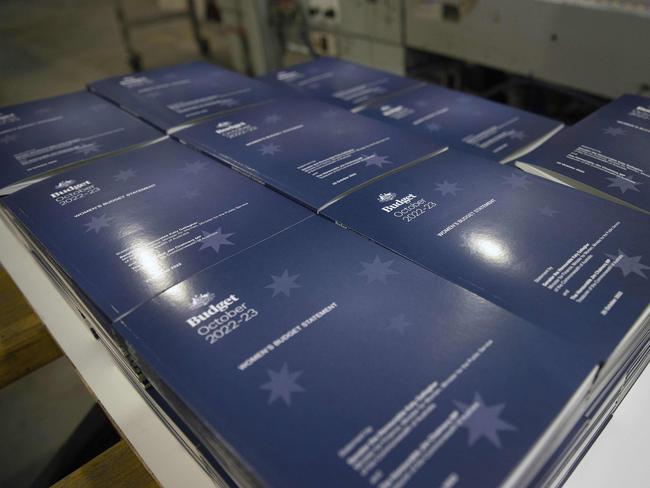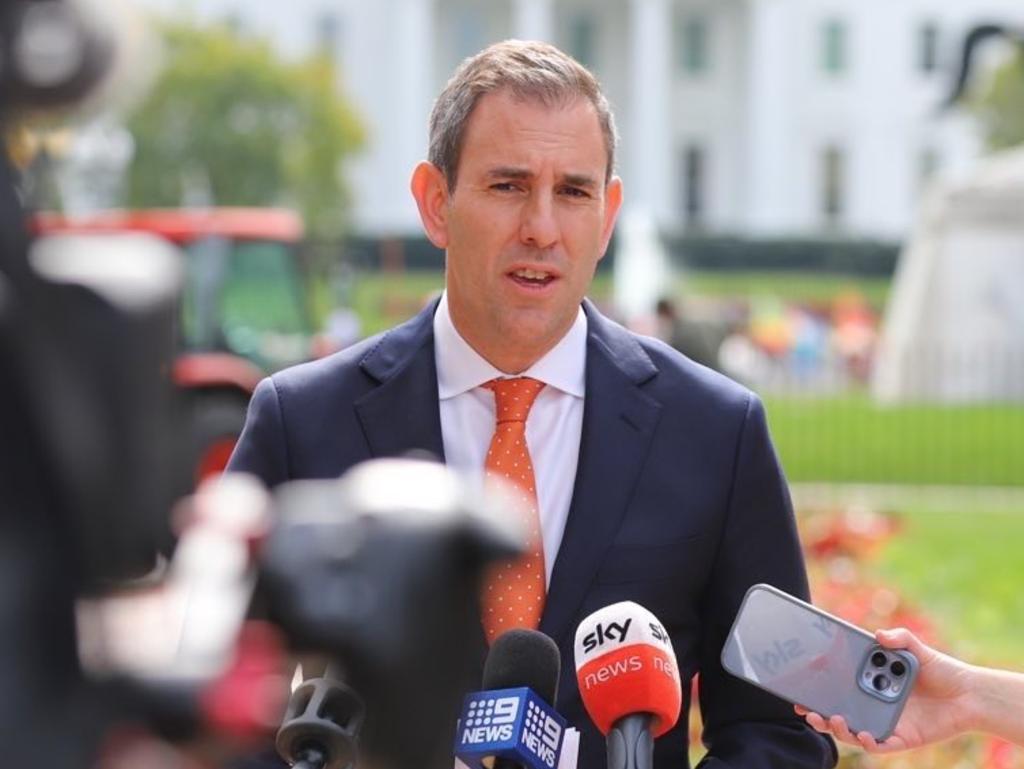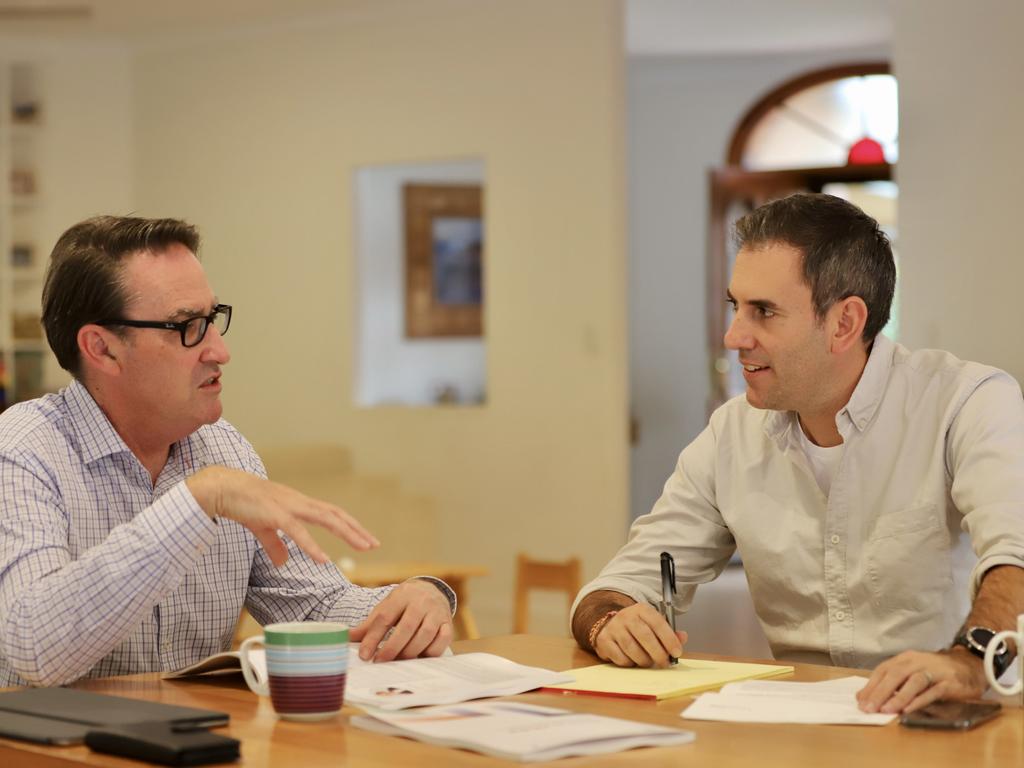
On top of the $60bn improvement to the bottom line in the Final Budget Outcome for 2020-21, Chalmers can expect a further $114bn in additional revenue over the next four years, according to a forecast by Deloitte Access Economics. A lot might happen between now and June 30 but, if Chalmers can discover his inner fiscal conservative, a budget surplus is not impossible.
Chalmers holds the best hand dealt to an incoming treasurer since Swan. Against most expectations, Josh Frydenberg managed to achieve the budget surplus the pandemic swept from his hands in 2020. The V-shaped recovery vindicates the strategy of using targeted, temporary welfare to preserve the structure of the economy by keeping businesses solvent and people in jobs.
Scott Morrison was never going to get the pat on the back he may think he deserves. Most of the accumulated grievances from the pandemic could not be measured in dollars and cents. The social costs of lockdowns, border closures and coercive public health policy for which Morrison became a scapegoat have distracted from his achievements. The scale of the national debt has discouraged many conservatives from coming to his defence.
Yet Morrison and Frydenberg bequeathed an economy that is humming faster and more smoothly than any in the Western world. Every pessimistic outlook from Treasury since the start of the pandemic has been confounded by actual results, with the singular exception of inflation.
If the revenue forecasts in the 2022-23 March budget were indeed understated by $114.4bn, as Deloitte Access Economics predicts, the cumulative underlying cash deficits over the next four years will knock more than 5.6 per cent off the ratio of net debt to GDP in 2025-26.
Chalmers’ moment of economic sunshine will not last long. The deterioration of the US economy, slower growth and the economic horror story unfolding in Europe suggests this may be the last good economic news Labor can expect before the 2025 election. The certainty of near-term external economic shocks, however, adds to the imperative for fiscal discipline. This is no time to delay further budget repair, even though that means making difficult decisions between good politics and good policy.

Restraints must begin to be placed on the big-spending areas of health, education and welfare as a precursor to serious reform. It is certainly not the time to be increasing recurrent spending by introducing new government programs and expanding old ones. That requires Labor to break the habits of a lifetime and govern in a manner that suits the times. Chalmers must put aside any thoughts of being the fiscal activist his former boss Swan once argued was the proper role for Labor treasurers.
He must recognise the Rudd-Gillard kneejerk response of throwing money at everything is not only fruitless but dangerous in a period of inflation. When interest rates are being raised to bludgeon families and businesses into cutting spending, the government must cut its spending too. A budget designed to help families would reduce government spending to relieve pressure on interest rates, shielding families from mortgage shock.
A budget to help families in middle Australia would not withdraw the stage three tax cuts that were part of Labor’s platform at the election. Reducing the marginal tax rate on income over $45,000 from 32.5c in the dollar to 30c will provide relief to most taxpayers. Extending the 30c rate up to $200,000 will assist middle-income earners in the mortgage belt while retaining the progressive structure of the income tax system.
The campaign to abandon the tax cuts is not being driven by economists but virtue signallers, such as teal independent Monique Ryan, who proclaimed in a recent Tweet that “proceeding with Stage 3 tax cuts makes no economic sense. We must respond to the reality of our circumstances and prioritise assistance for people on low incomes”.
The moral case for income tax cuts is strong. Revenue from income-related taxes rose by 44 per cent between 2013 and 2021, three times faster than inflation, robbing Labor of any excuses not to give some of it back.
Australians contribute a higher proportion of national revenue through personal income taxes than every other OECD country except Denmark. Deloitte Access Economics calculates income tax on individuals will increase as a share of federal government taxation revenue from 48.1 per cent in 2021-22 to 50.4 per cent in 2025-26. Without the stage three cuts it would rise to 51.8 per cent, a level not seen since last century, before the introduction of the GST. Income tax relief across the board is the fairest and most inclusive measure available to a government that wants to ease the pressures on working families.
Yet Chalmers’ refusal to commit to the stage three tax cuts suggests he has a different plan, one that sees every untaxed dollar as a dollar less the government can spend on programs. The presumed right to other people’s money was epitomised by Swan who habitually described the removal of tax concessions as “saves” in the Budget.
It behoves us to expect the best from a new Treasurer on the eve of his new budget and let the numbers tell the story on Tuesday night. We must assume the weekend’s announcement that the budget would extend subsidies for childcare to families with incomes of up to $350,000 was an aberration. Let us assume Labor feels obliged to fulfil an election pledge, however ill-judged. Delivering relief to wealthier households at the expense of every battling family in the mortgage belt when home lending rates are heading towards 6 per cent can hardly be described as fair. Let us also assume this fealty to Labor’s own pre-election promises extends to tax cuts and he will put aside any thought of dropping them on the grounds that they favour the wealthy.
The Treasurer has the call.
Nick Cater is executive director of the Menzies Research Centre.







Wayne Swan’s boast in 2010 that he would return the budget to surplus in two years was to haunt him for the rest of his days. Twelve deficits later, Jim Chalmers finds himself in the unexpected position of delivering on that promise if he so chooses.